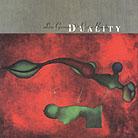July 1999
The allure and mystery of the unknown has since been replaced with a growing familiarity of the diverse musical dialects of the globe. This has enriched our vernacular tremendously and created a whole new genre called world music. At the same time, what used to be straight lines delineating cultures from each other has become mutually interlocking, and in many cases the differences that made up distinction and individuality have eroded. Therein lies a danger of wholesale appropriation and homogenization, visibly echoed in the repetitious blandness of international cities sporting hotels, restaurants and shops of the very same chains. The sharp edges of uniqueness wear down to reduce individuality to the common likeness of rounded pebbles on any beach. It is not surprising that many artists aware and suspicious of this trend feel the urge to resist the tide and stake out a protected area of their own. And in the case of Lisa Gerrard, well known as the lead singer for Dead Can Dance, this has meant the creation of a very personal tribal language whose delivery and rhythmic drum accompaniment evoke images of an older culture, one which never existed but inside her own vision. On Duality, her second solo outing, she ventures once again into the wilderness of her fictitious outback, using her voice to recall, from deep within our collective psyche, memories of a more primitive era when initiation rituals introduced us to the natural mysteries of totem animals, lucid dreaming, group trances and communion with the gods of the nature kingdoms. It is only fitting that the map which should be the liner notes provides no clues whatsoever as to where we find ourselves. The only markers given are the identities of the two artists and the ten track titles. That’s it. With "Shadow Magnet," our sojourn fittingly begins with a low drone over which something resembling a Turkish bass ney flute enters in a descending modal line that is echoed in the higher register by Gerrard’s commanding voice and under which synthesized strings swiftly set up a desert mood invigorated by hand drums and finger cymbals. This merely compounds the illusion of being transported right into the heart of an Arabian trek through dusty, sun-poisoned vistas. "Tempest," the next track (trek?), develops over a very insistent drum beat and voice-dubbed African-style chorus fragments. An occasional oud or bouzouq motif maintains the mood of a Middle Eastern arid desert scape. Then the vision shifts to something greener as birds are chirping and strong interweaving voices float above vocal harmonies with a faintly Gaelic air. We might then be entering an ancient Scottish monastery, where two solitary voices are engaged in plain song that shifts forward in time as symphonic chorals fill in and the solo voice assumes a strong Byzantine flavor. And so it continues, shifting panoramas of phantom places dreamed up by the artists who, like shamans, become the link to the secret dimensions they inhabit. Any descriptions must fall well short as they’d have to use measures of the known to plumb that which is imaginary. But with the precedents of the best in the Dead Can Dance canon, most listeners will undoubtedly have a keen sense for the entrancing spell that Gerrard’s unique voice can so compellingly weave. Duality is an imposing monolith of Gerrard’s private Stonehenge where her modern rendition of an old tribal syntax restores us to a mystery lost. When modern man invented the light bulb, he cast himself out from the realm of the unknowable, believing that wherever he might shine his new-found light, answers and discoveries would emerge to explain that which puzzled him. Rather than providing answers, Duality invites us to a trek into the wilderness where we just might reconnect with the savant that lives within and who delights in the paradox of mere-being and not-knowing. Highly recommended. GO BACK TO: |
 Lisa Gerrard & Pieter Bourke - Duality
Lisa Gerrard & Pieter Bourke - Duality![[Reviewed on CD]](../format/regcd.gif) There
was a time not so long ago when the world’s geographical map still displayed many a
white spot -- areas that had resisted exploration for reasons of inaccessibility or
threats such as incurable diseases and cannibalism. The map of the global musical terrain
likewise had many a glaring gap that began to fill when due to political upheavals,
hermetically sealed cultures opened up and high-powered radio stations were reaching far
beyond their ground bases to aim deep into very foreign territories.
There
was a time not so long ago when the world’s geographical map still displayed many a
white spot -- areas that had resisted exploration for reasons of inaccessibility or
threats such as incurable diseases and cannibalism. The map of the global musical terrain
likewise had many a glaring gap that began to fill when due to political upheavals,
hermetically sealed cultures opened up and high-powered radio stations were reaching far
beyond their ground bases to aim deep into very foreign territories.